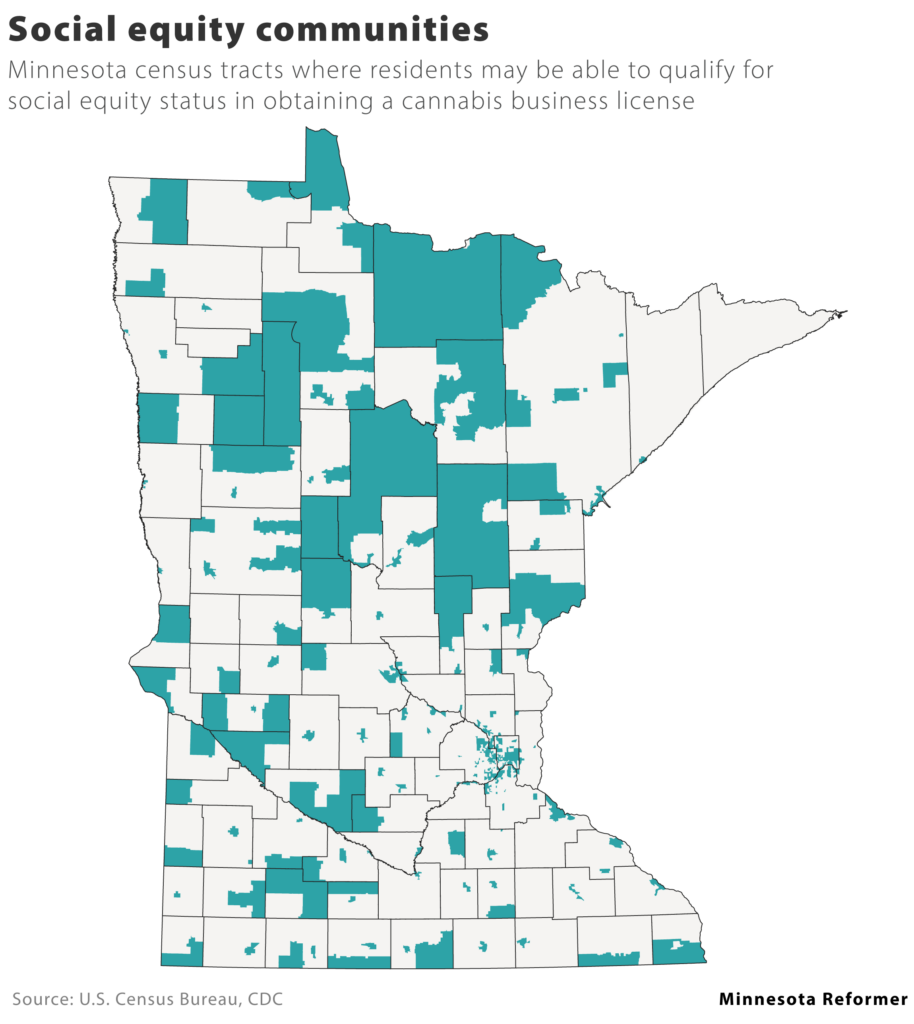
Lawmakers “tried to loop in all these other groups that weren’t very well defined, and it’s because they really wanted to put race in the bill.”
By Christopher Ingraham, Minnesota Reformer
Between 30 and 40 percent of Minnesota adults could plausibly qualify as “social equity” applicants for cannabis business licenses, according to a Reformer estimate based on the new equity rules approved by the Legislature this year.
Lawmakers initially created the social equity category as a way to prioritize business applications from Minnesotans who have been harmed by marijuana prohibition in the past.
“It is the state’s responsibility to undo” the harm of prohibition, Sen. Lindsey Port, DFL-Burnsville, told the Star Tribune in March. “That means we have to aim the benefits proportionally at the communities that were harmed,” said Port, a chief author in the Senate.
But the social equity criteria written into law now include a number of economic and social measures that go beyond individuals and communities who have been targeted for past marijuana enforcement. They encompass anyone who:
has lived for five years in a neighborhood where more than 20 percent of people are in poverty or on food stamps, or where the median income is less than 80 percent of the
Read full article on Marijuana Moment


